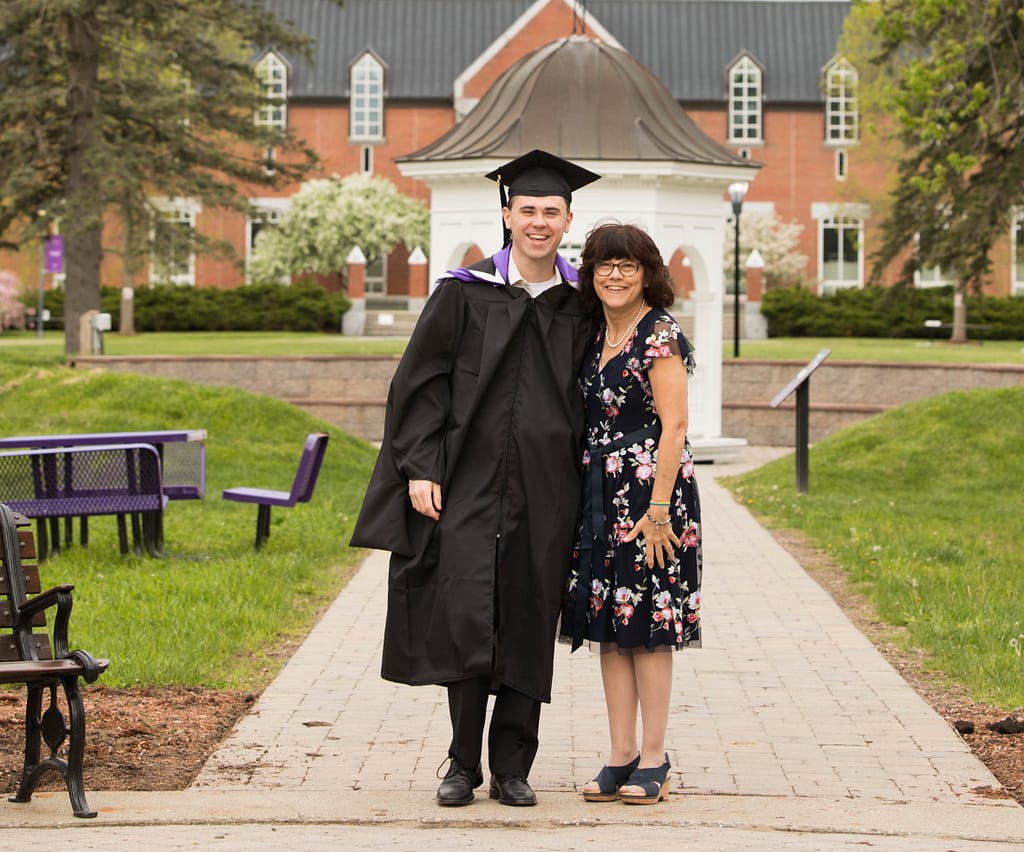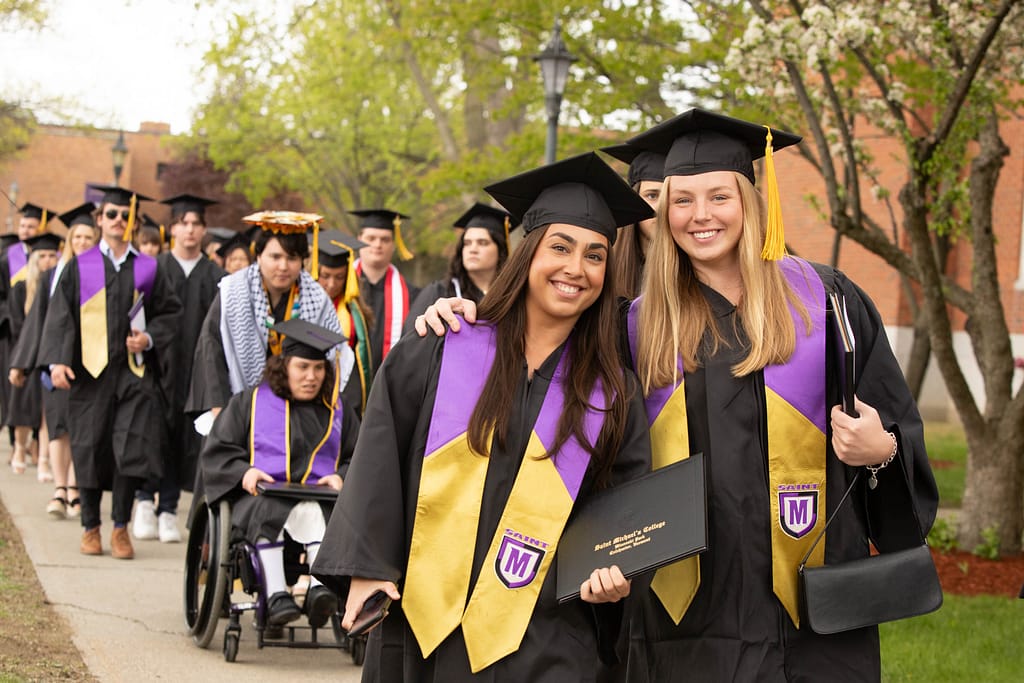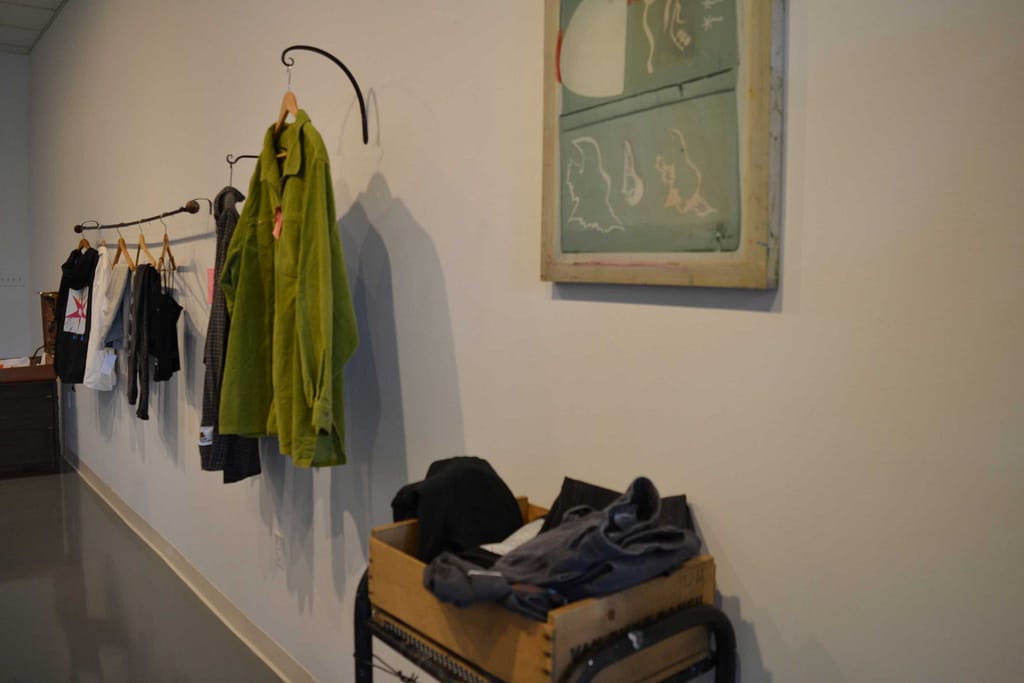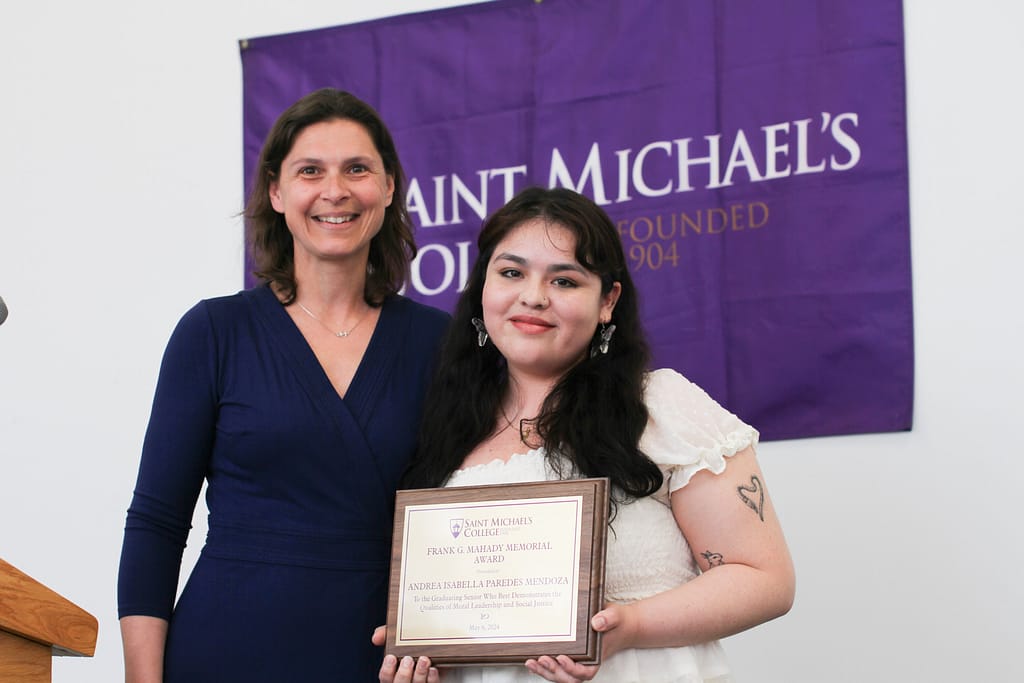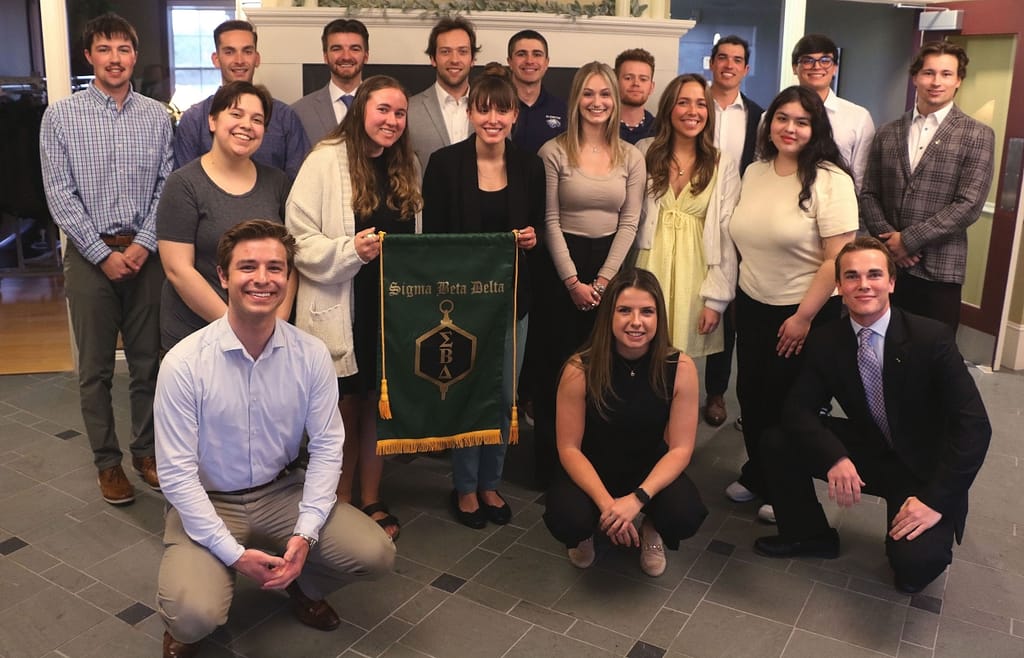The Inventor: Thomas Dickerson ’13
A few decades, degrees, and startups later, Geopipe Chief Science Officer and cofounder Thomas Dickerson laughs. “Inventor. It’s not really a job title, is it?”
Actually, it is.
The word entrepreneur, he admits, has a Renaissance flair to it, a sense of being between spaces, an organization searching for a viable business model. But Dickerson and his friend and cofounder Christopher Mitchell have invented a product and a company, designed to fill a need, using technologies that are constantly evolving.
“We use machine learning to efficiently build game and simulation environments from real-world places,” he explains.
These can be used in gaming, but can also be used by builders and in training first responders, in a range of possible contexts.
Dickerson and Mitchell, both with Ph.D. expertise in dividing complex problems into smaller pieces to be solved on many computers at once, started Geopipe, a Burlington-based company, in 2016. The company is still in its early stages; its product is ready, but it is still iterating on the right ways to engage with the market, a landscape that can be ephemeral. This is where the liberal arts come in.
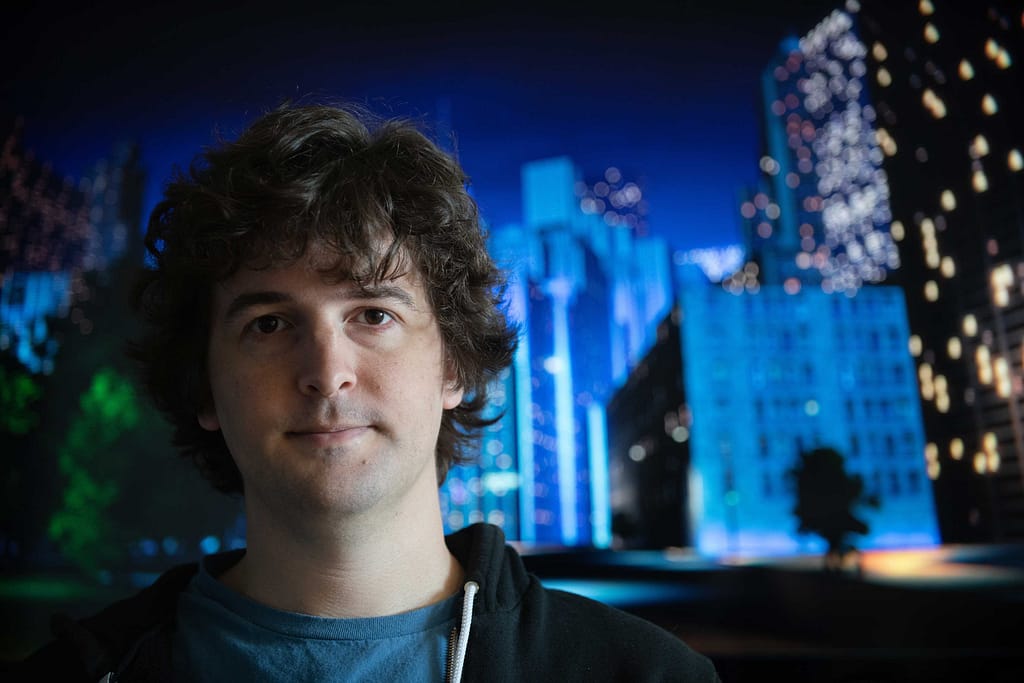
Thomas Dickerson ’13, chief science officer and cofounder of Geopipe, in front of one of his simulations in a conference room at the Vermont Center for Emerging Technologies in Burlington. (Photo by Jerry Swope)
“You have to be a good science communicator, listen to the customer’s pain points, and figure out ways to solve their problems. You have to be able to speak to potential investors, make complex concepts accessible. The gap between ideas people may have and what happens in practice can be huge,” says Dickerson, whose degree in Physics, Computer Science, and Mathematics taught him many languages. In a liberal arts school, you have the opportunity to break out of one discipline to learn the language of another, he explains.
Dickerson’s father is a professor of computer science at Middlebury College, with affiliations in creative writing and environmental studies.
“He’s the poster child for breaking out of silos,” Dickerson says proudly.
He’s equally proud of his mom, a homemaker and community builder. And, let’s face it, the kid was a bit of a young genius, completing half of the College’s computer science requirements while still in high school.
At St. Mike’s, Dickerson got personal attention from faculty that he might not have gotten at a larger school.
“I got to take an independent study, T.A. computer science labs, and work on some very cool math research—all in my first year,” he says.
After taking a class with Physics Professor Alain Brizard, he did a summer fellowship at Princeton’s Plasma Physics lab in 2012.
“You’re Brizard’s student?” people there said. “He’s the smartest person I know!”
The liberal arts help you become a more well-rounded person. Inside and outside the classroom, you are surrounded by people with very different interests and abilities. So when Dickerson was deciding where to go to graduate school, he chose Brown over NYU, because of its more interdisciplinary campus culture. He also believes that the liberal arts help people make the decision to pursue potentially life-changing paths and imagine various outcomes. How do the hypotheticals play out? The broader your perspective, he believes, the more outcomes you can imagine, the more choices you have, and the better your chances of making the right choices.
What are some of the biggest challenges facing entrepreneurs starting companies?
“Half the people you talk to will say, ‘you’re insane, don’t do that,’” he says. It’s hard to hear “no” so often. And asking for money, from customers or investors, can be a “deeply uncomfortable experience”—experienced startup mentors may recommend “asking for more and more outrageous stuff” in your daily life to become desensitized to rejection. The life cycle of a company also includes scaling up and hiring people. Dickerson is keenly aware of the responsibilities of being a manager—Geopipe has hired dozens of employees over the years, all with rent, mortgages, healthcare coverage, families, and other things to think about.
So why do it?
“It’s not just a hustle. And it’s not just about making money. The reason to do it is that there is something you want to see brought into the world,” he says. “And you can’t get it out of your head.”
“I’m going to be an inventor when I grow up.”
